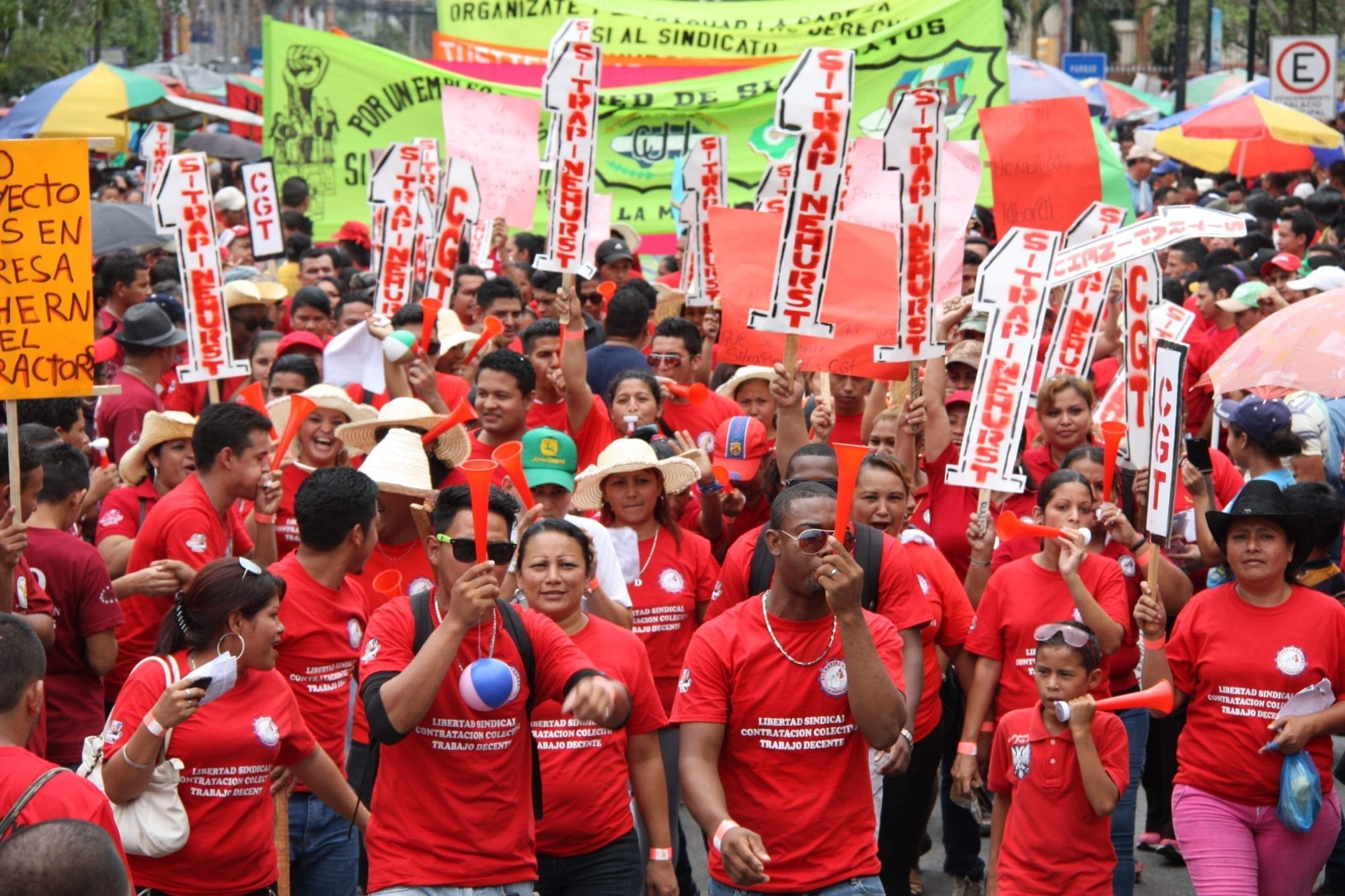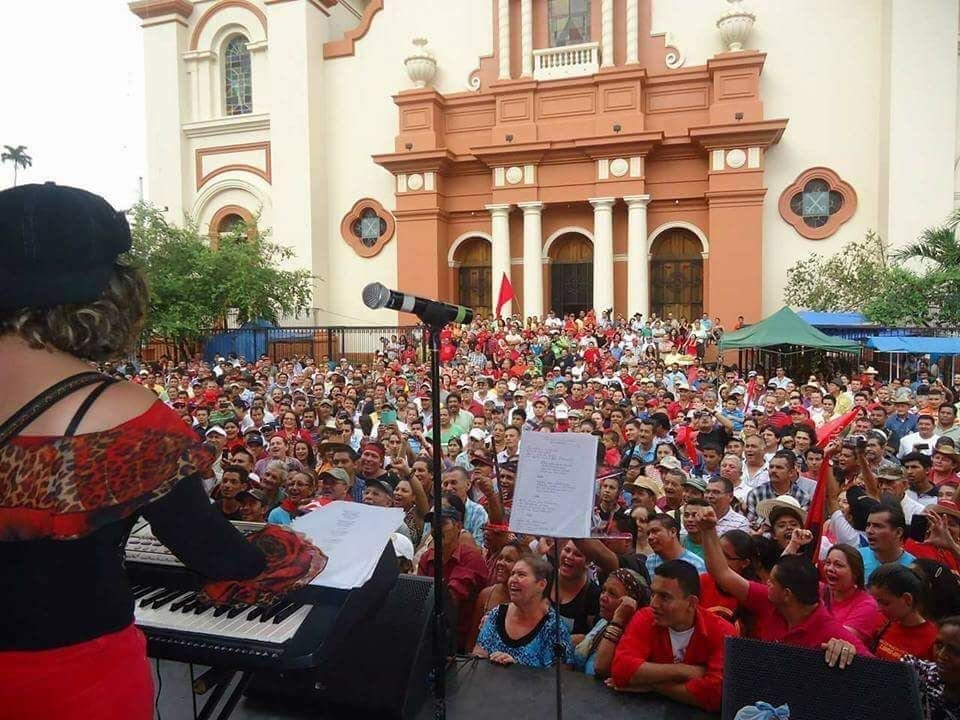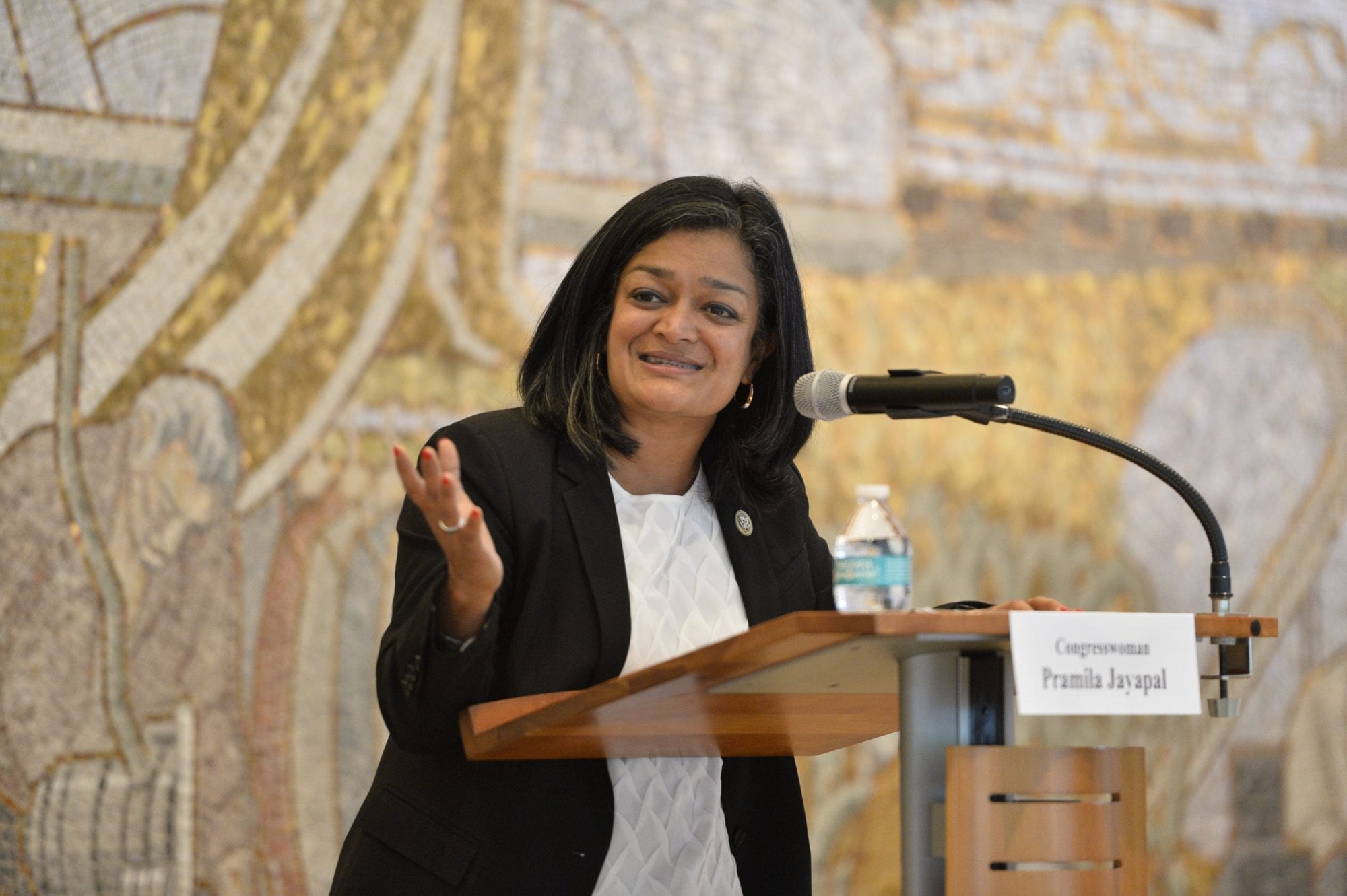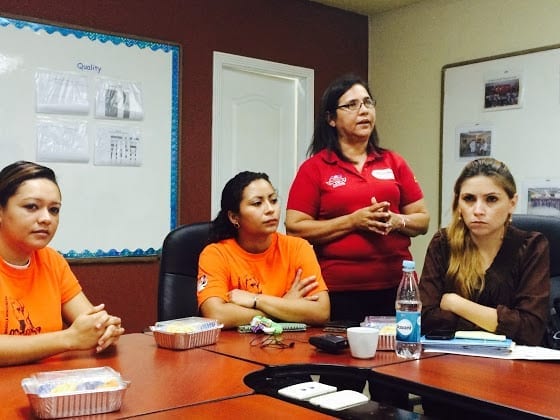The Honduran Network of Trade Unionists against Anti-Union Violence is calling for a public recount of votes, an end to the violent repression of protests and international solidarity with the people of Honduras following a November 26 presidential election marred...

Through the Solidarity Center’s women’s leadership development, tens of thousands of workers in Honduras’s garment sector negotiated collective bargaining pacts that significantly boosted wages and provide benefits like educational funds. Credit: Solidarity Center/Stephen Wishart
Social Justice Unionism: Labor Can Make Change
“Informal workers are organizing and they will organize as long as there is injustice and oppression,” says Sue Schurman, distinguished professor of Labor Studies and Employment Relations at Rutgers University. Opening a Solidarity Center book launch and panel...
Honduran Unions to Be Honored at 20th Anniversary Event
In Honduras, union leaders are on their way to successfully negotiating eight collective bargaining agreements covering 21,000 garment workers who have joined unions in the past few years. Contracts negotiated so far include 23 percent wage increases, free...



